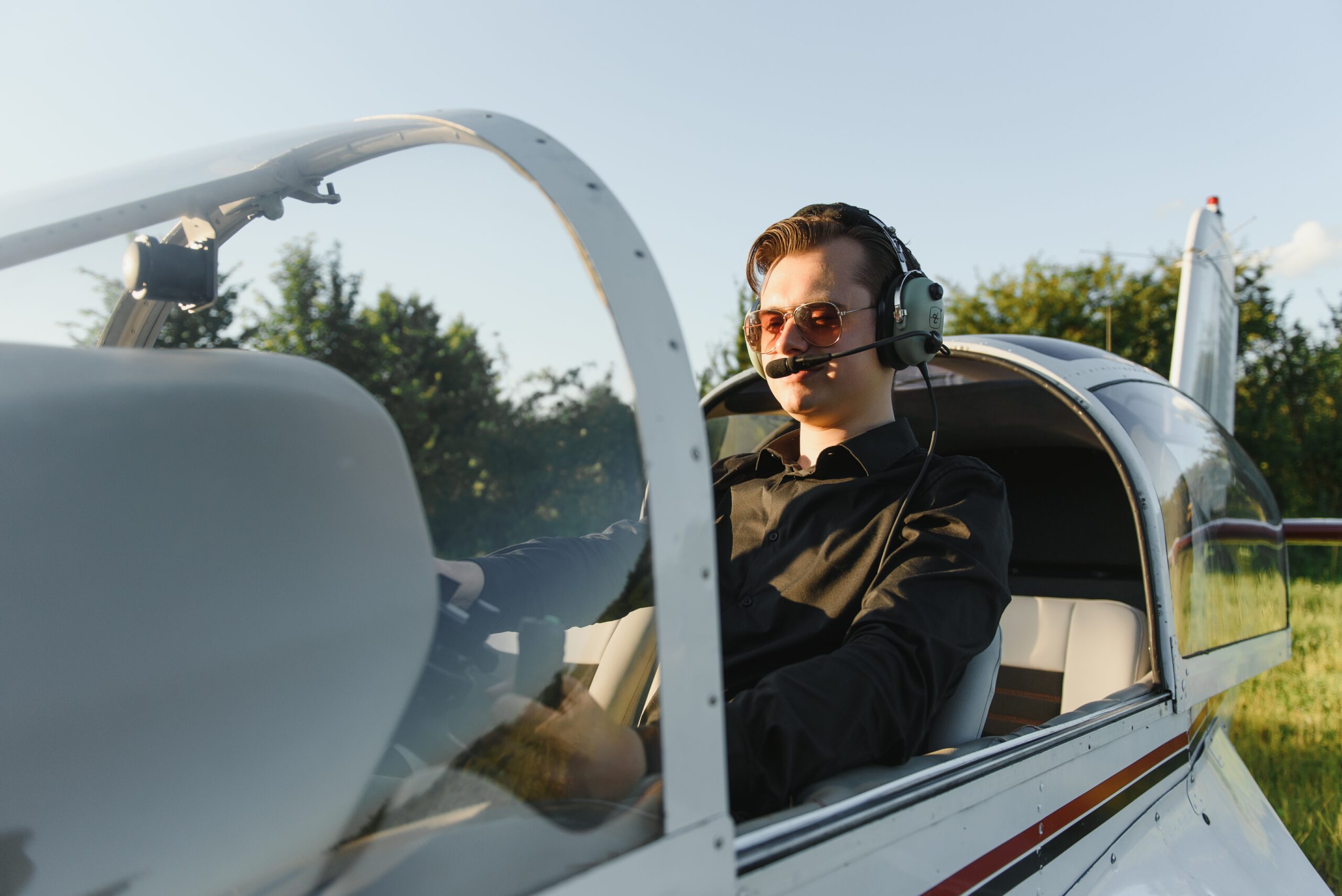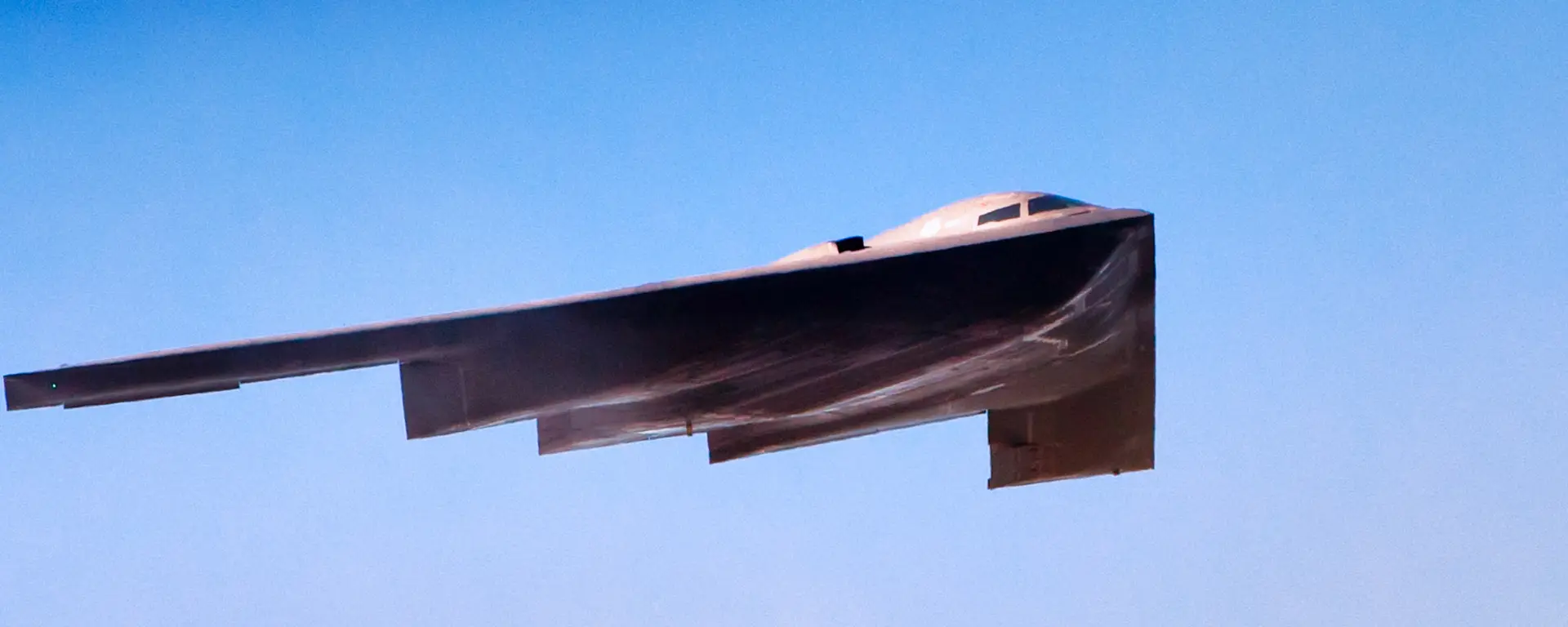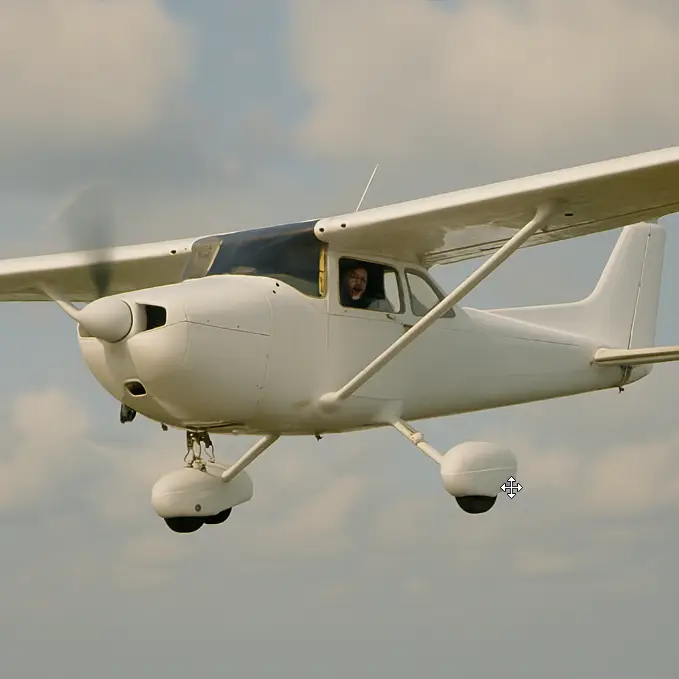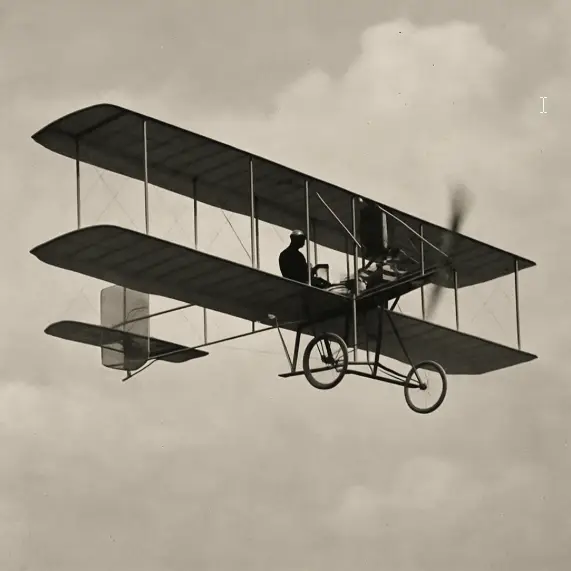Exploring the Advantages of a Private Pilot License

- aviatorpro_6714
The allure of the open skies is undeniable. The freedom, the perspective, the thrill – it’s a unique experience that many dream of.
But what if you could turn that dream into reality? What if you could take control of your own aircraft, chart your own course, and explore the world from above?
That’s the promise of a private pilot license. It’s more than just a piece of paper or a line on your resume. It’s a ticket to a world of opportunities, adventures, and personal growth.
In this article, we’ll delve into the benefits of a private pilot license. We’ll explore the personal, professional, and lifestyle advantages that come with this achievement.
We’ll also address the pros and cons of being a private pilot. It’s not all smooth sailing, but for many, the rewards far outweigh the challenges.
We’ll provide insights into what you can do with a private pilot license. From personal travel to career advancement, the possibilities are vast and varied.
Finally, we’ll discuss how to justify the investment in a private pilot license. It’s a significant commitment, but as we’ll see, the returns can be equally significant.
So, whether you’re an aviation enthusiast, considering a private pilot license, or simply curious about the world of aviation, this article is for you. Let’s embark on this journey together.
The Freedom of Personal Travel
Imagine waking up on a Saturday morning with no plans. As a private pilot, the sky is truly the limit when deciding how to spend your day. With your own aircraft, you can explore places where commercial flights don’t fly. This freedom to travel on your own terms is one of the most compelling benefits of a private pilot license.
The ability to fly to remote or inaccessible locations offers unique travel experiences. It allows you to set your schedule without the constraints of commercial flight itineraries. Whether it’s a spontaneous weekend getaway or a planned adventure, you’re in control.
Private aviation also offers quicker travel times. You avoid long security lines and can access smaller airports closer to your destination. This efficiency makes getting there part of the enjoyment rather than a chore.
Holding a private pilot license opens up a world of flexibility. It goes beyond simple travel and extends to unique experiences:
- Visit unique destinations: Land in charming towns and secluded areas.
- Plan impromptu trips: No lengthy booking processes are required.
- Create memorable family trips: Fly your loved ones to remarkable places.
- Avoid crowded airports: Use convenient smaller airports with fewer crowds.
Flying also enriches your view of the world. Seeing the landscape from above provides insights and perspectives unmatched by ground travel. This unique vantage point adds depth to travel experiences, making them more personal and memorable.
Ultimately, private flying enhances your lifestyle. It infuses journeys with a sense of excitement and independence that’s hard to match. The beauty of personal travel as a pilot is the freedom to chart your course, making every trip a thrilling adventure.
Career Advancement Opportunities
A private pilot license is not just a ticket to personal adventure; it can also open the door to career opportunities. While it primarily allows for non-commercial flying, it serves as the first step toward more advanced aviation roles. For those captivated by the idea of flying for a living, the private pilot license is a necessary foundation.
Acquiring this license signals commitment and dedication to potential employers in the aviation sector. It shows that you have the discipline and skill necessary for more complex aviation tasks. For those considering a future in aviation, it adds substantial value to your resume.
Moreover, a private pilot license can enhance professional roles outside aviation, particularly in fields requiring frequent travel. For business professionals, piloting can reduce travel time and increase efficiency. This can be a powerful tool for those in sales or real estate, offering a competitive edge.
Networking within the aviation community can further your career prospects. Many pilots find opportunities through connections made in flying clubs or aviation events. This community can lead to fruitful partnerships and collaborations that boost your career trajectory.
In essence, the private pilot license not only elevates personal satisfaction but also enhances career development. Whether aiming to become a commercial pilot or seeking a professional edge, the benefits are substantial. The investment in this license can yield surprising opportunities across various fields.
The Joy of Flying: A Unique Perspective
Flying offers a perspective unlike any other. As a private pilot, you experience the world from above, gaining a fresh outlook on familiar landscapes. This unique vantage point allows you to appreciate the intricate beauty of the world, from vast oceans to rugged mountains and sprawling cities.
Being in the cockpit presents a visceral connection to the forces of nature. You are not just a passenger; you command the aircraft, feeling each gust of wind as you navigate through the skies. The thrill of takeoff, the serenity of cruising at altitude, and the precision required for landing make each flight exhilarating.
Flying also provides a peaceful escape from life’s stresses. Once airborne, the world below seems to fade away, leaving room for reflection and mindfulness. This meditative state is cherished by pilots who find solace in the freedom and tranquility the sky offers.
Moreover, sharing this experience with friends or family makes it even more rewarding. Taking loved ones on a flight can create lasting memories and deepen bonds. A private pilot license not only broadens your horizons but enriches your life through the sheer joy of flying.
Networking and Community in Aviation
The aviation community is a vibrant network of passionate individuals. By joining this group, private pilots gain access to a world of knowledge and camaraderie. Whether it’s through flying clubs or local airport gatherings, pilots share invaluable insights and experiences.
Networking in aviation often leads to lasting friendships. Pilots support each other, exchanging tips and learning from one another’s journeys. These connections can also open doors to unique flying opportunities and collaborative experiences, enhancing your skills and enjoyment.
Joining aviation organizations expands your social and professional circles. Events such as airshows and fly-ins allow you to meet fellow enthusiasts and industry professionals. These interactions not only broaden your understanding of aviation but can also present career advancements and mentorship possibilities.
Furthermore, the sense of belonging within this community fosters personal growth. Engaging with diverse individuals who share a love for flying inspires and motivates pilots. The aviation network is more than just a group; it’s a supportive and inspiring environment where every member thrives.
The Practical Benefits: Skills and Knowledge
Obtaining a private pilot license equips you with numerous practical skills. These go beyond flying, impacting various aspects of life. As you navigate through training, you develop a solid understanding of weather patterns and navigation.
The process enhances your decision-making and problem-solving abilities. Faced with diverse situations in the air, pilots learn to think on their feet. This sharpened skill set is invaluable, extending its benefits into daily and professional life.
Additionally, your knowledge of aircraft mechanics grows. Private pilots gain insight into how airplanes function, fostering a deeper appreciation for engineering principles. This comprehension can be advantageous in technical careers and hobbies alike.
Engaging in pilot training enriches your understanding in several areas:
- Weather Analysis: Interpreting weather forecasts and understanding their impact on flights.
- Advanced Navigation: Mastering the use of maps, GPS, and other navigation tools.
- Aerodynamics: Grasping how planes achieve lift and maintain flight.
- Communication: Utilizing aviation jargon and protocols with air traffic controllers.
- Emergency Procedures: Preparing for and managing unexpected situations confidently.
These skills collectively expand your cognitive toolkit. They also contribute to a disciplined learning environment where lifelong education becomes the norm. For many, the journey of acquiring a private pilot license is as rewarding as the destination itself, offering continuous opportunities for personal and intellectual growth.
Pros and Cons of Being a Private Pilot
Being a private pilot brings immense satisfaction and joy. However, it also comes with its share of challenges. Understanding both sides will help aspiring pilots make informed decisions.
On the positive side, having a private pilot license provides unparalleled freedom. You can fly to destinations that commercial airlines don’t serve. This opens up unique travel opportunities.
Another advantage is the sense of achievement that comes with flying an aircraft. Few experiences match the thrill of taking off and navigating the skies. The license also allows you to explore various landscapes and climates.
Social opportunities abound in the aviation community. Pilots share a camaraderie that extends beyond the airfield. Networking within this community can lead to lifelong friendships and professional connections.
However, there are drawbacks to consider. The cost of acquiring and maintaining a license can be substantial. This includes not only training costs but also ongoing expenses for flights and certifications.
Time commitment is another factor. Piloting requires continuous skill enhancement and education. Balancing these demands with personal life can be challenging.
Here’s a summary of the pros and cons:
Pros:
- Travel freedom and flexibility
- Sense of achievement and pride
- Unique perspectives and experiences
- Networking and community engagement
Cons:
- High cost and expenses
- Time-intensive training and maintenance
- Ongoing education requirements
Evaluating these factors helps potential pilots weigh the benefits and responsibilities effectively. For many, the joys and freedoms far outweigh the challenges faced in this rewarding hobby.
What Can You Do with a Private Pilot License?
A private pilot license unlocks a world of opportunities. It’s not just about flying for pleasure; it offers much more.
First, private pilots can explore thousands of airports. This access extends far beyond what commercial flights offer. You can discover remote or scenic locations at your leisure.
The license also allows for transporting goods. Whether for personal use or business, this is a practical benefit. It’s ideal for those needing quick, flexible transport solutions.
Additionally, you can share your passion with others. Taking friends or family on flights creates unforgettable experiences. It’s a way to strengthen bonds and inspire those around you.
Here are some activities you can engage in:
- Leisurely flights to picturesque destinations
- Personal or business transport of goods
- Sharing the joy of flying with loved ones
- Participating in aviation-related volunteer work
Flying can extend beyond personal enjoyment. Pilots can join organizations like Angel Flight, providing medical transport for those in need. This kind of volunteer work adds a fulfilling dimension to piloting.
Overall, a private pilot license offers rich possibilities. It combines practicality, joy, and the chance to make a difference in people’s lives.
How to Justify the Investment in a Private Pilot License
Investing in a private pilot license may seem significant at first. Yet, the returns can be substantial and multifaceted. Consider the personal freedom and satisfaction that come with piloting your aircraft. It’s an unmatched feeling of autonomy and accomplishment, hard to quantify but deeply rewarding.
Further, the skills gained enhance professional opportunities and personal growth. Valuable traits such as decision-making, discipline, and a structured learning mindset are cultivated during training. These traits benefit both aviation and non-aviation careers, making the investment in your license not just financially sound but also a wise step in personal development.
FAQs About Private Pilot Licenses
What is a private pilot license (PPL)?
A private pilot license allows individuals to fly an aircraft for personal use. It is not intended for commercial flying or compensation.
How long does it take to obtain a PPL?
The time required varies. On average, it takes 3 to 6 months, depending on the training schedule and weather conditions.
What are the costs associated with obtaining a PPL?
Costs can range from $15,000 to $25,000. Factors include hours of flight training and region-specific fees.
What are the age requirements for a PPL?
Applicants must be at least 17 years old to qualify. Ground training and flight lessons can begin earlier.
Is a medical certificate necessary for a PPL?
Yes, a third-class medical certificate is mandatory. It ensures the applicant meets health standards for safe piloting.



